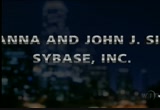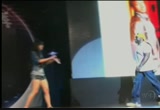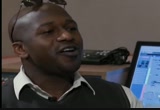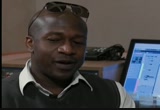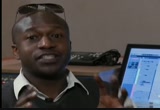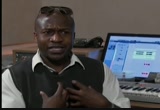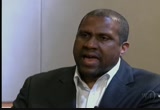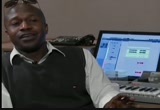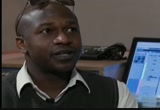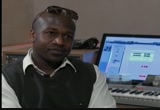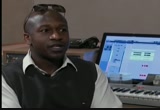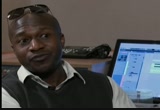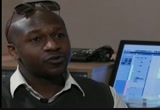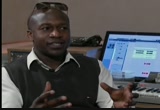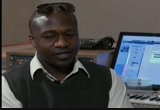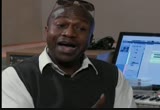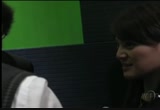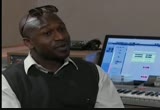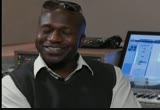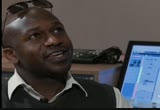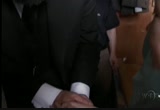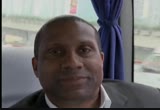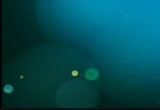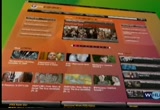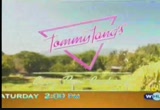tv Tavis Smiley WHUT July 14, 2011 8:30am-9:00am EDT
8:30 am
tavis: good evening, from china, i'm tavis smiley. we're here all this week to listen and to learn as we speak to the chinese people about the issues that matter to them. the social husband is. the cultural issues. their families. the future, education and environment and so much more as we're on location tonight and all this week. i'll have more in a moment.
8:31 am
>> the cornerstone we all know. t inos just a street or boulevard but a place to gather no with your demoupt make every day better. community to make every day better. >> nationwide insurance proudly supports tavis smiley. e working to improve financial literacy and the economic >> nationwide is on your side >> additional funding provided by -- >> and by contributions to your pbs station from viewers like you. thank you. kcet public television]
8:32 am
>> this is my second trip to china and i've come back with some of my staff and good friend and colleague, dr. cornel west. we're something of an anomaly in china. you don't see many african-americans. it resulted in some friendly curiosity. that same curiosity greeted andrew ballen when he arrived in beijing a decade cooking. he dropped out of duke a decade ago. today he is carving out a unique niche for himself. >> it is 8:30 in the morning. time for me to see what people eat for breakfast. >> create food and pros parity.
8:33 am
there are goal is simple. increase the giant pandas numbers. >> i first met him a year ago and i knew connecting with him was a priority. for the second trip, i wanted to understand why this young african-american man who was on the fast track to the american dream back home would choose this road. we talked about rapid changes taking place in china. the hip-hop scene in china. regan talking about why he -- we began by talking about why he quit law school. >> i felt as though being considered the best black, being
8:34 am
looked at as i had been sort of the benefactor or the beneficiary of somebody else's -- it wasn't something i wanted. talking about cornell and what he said about this -- err day of my life seemed to be a meeting with the absurd. i decided i had to go in search of my humanity. i wanted to go somewhere that was so far off the beaten track. tavis: what were you experiencing that made you feel so out of sorts that you wanted to get away from it all? >> it was i think a million different -- just small indignities. it wasn't necessarily anything systemic. it was me facing my day going i realize when i'm in a grocery store when somebody is pulling their purse. i'm a dark-skinned black man. walking the street at night in north carolina.
8:35 am
i'm thinking to myself, there must be a place on this planet where i can simply be fully human. and be judged based on the content of my character. the heights to which i would like to go and i am able to go intellectually and spiritually i need to find that place. i cannot be stuck in that context every day. like oh, you're a duke. you received this scholarship. probably never get this job with this firm. i'm thinking to myself, how about i just rewrite the book. i'm going to go somewhere where i have to restart. there is nobody offering me anything other than -- tavis: why this place? why china? >> it does seem like a paradox. tavis: yeah, it does. >> in my mind, i looked at china, i felt that bold sense,
8:36 am
the sense that the chinese in every way were saying look, we are who we are. we are not going to take this euro centric view of the world. we just won't do it. that intrigued me on top of the fact that it was just so far away and it seemed to be at that point in 2001, 2002, moving towards this watershed moment which i think has now reached. tavis: how did your dad feel about you dropping out of law school? >> he comes from 1950's 1960's -- he came to the united states from jamaica. he understands success, the bootstrap work ethic. you got this opportunity. i had an opportunity. he was on welfare i think during medical school. went to cornell medical school and finished. what he was saying is son, i have given you to best of
8:37 am
everything. what i expect of you now is to ensure that you have learned a trade. that you are self-sufficient and that you can make sure that continues for pesterity. but he is -- posterity. he is my hero. i think he was disappointed and hurt. i think on some level he was saying what did i do. he didn't do anything wrong. tavis: how did you choose china? >> it was literally me saying where is it that looks like it has been relatively untouched by western paradigms and western expectations about me. what we can and cannot do. that and the fact that i -- at that point, i think hip-hop to me was -- it is my release. and i was thinking to myself, i know it is in japan and korea. but our music probably hasn't really touched china yet. i used to just dream to myself where i was going.
8:38 am
i wonder ithey feel the same way when they hear common, joe scott. i wanted to share that. tavis: when you got here, when you arrived in china, how were you treat initial sflip >> everything i experienced in america prepared me for this. growing up middle class in the states, i felt like that fish out of water from the very beginning. i was raised in neighborhoods that was jewish-white, middle class. i always had that sort of internal chip, i'm different. so when i ca to china, what turned itself a bit was it was you're different but you're different in an exciting way. people would come up and go, can i rub it off? no, you can't but it excited me and it gave me an opportunity to -- in every moment let another human being, a chinese human being know that our humanity is
8:39 am
fully intact. never mind what you see piped in here by hollywood. and who we are once you get right down to it, is somebody you can relate to and share with on a very full and deep level. so it excited me, honestly. tavis: i have traveled to a number of places around the world and i've been amazed at the expectations, the impressions, the view that people in these various places had of me the moment i arrived, in large point to your point because of hollywood. there are certain images. you know where i'm going with this. not so nice. not so kind. not so charitable and generous. ideas and impressions that they had about a guy who looks like me because of hollywood. did you experience any of that when you first got here? >> i experience that all the time. i was ready for it. to me, the expectation was this is what they have got.
8:40 am
when what i found is that sense of -- that minor sense of revollings of china which has been given to them from images they are receiving from hollywood is very, very thin. once you crack that initial surface, there is a depth of welcoming humanity that you receive in china. it was almost pavelovian. every time you meet someone, try to get through that surface. below that, it was just -- a treasure chest of love and appreciation and so i was -- every time and to do it on a larger and larger scale on television and radio. so it was my motivator. tavis: you come here with your $1,000 that your father gave to you and decide there is a way to use some of that money to have a club night and start playing some hip-hop. i'll let you tell the story.
8:41 am
>> hip-hop was the beginning of our economic success in china. only fitting. i came here having nothing to do with business at that point. i was teaching english, tavis, honestly. i don't know if you realize that. i was teaching english at that point. i thought to myself, i love china, but if i don't find some hip-hop here soon, i'm going to have to go home. i'm going to have to leave the place. i don't want to leave. being proactive, i said there is probably a market for it. i went to this woman, very kind. i said your business is not so good on a thursday. how about i take my net worth, give it to you, rent your club out and we'll split the proceeds and she said it's going to be black music? i said well, yes, it is. she said ok, let's give it a try. in two years it became a
8:42 am
shanghai institution. that put me on the road to the tv and the radio shows. tavis: and the voiceovers? >> they heard my voice and say we can't get ahold of james earl jones or tavis. tavis: much as i love china myself, i can't never learn the language. i could certainly never write it or more over, could never read it. you come heever here from north carolina, never -- over here from north carolina, never took a class. i've seen you interact. you speak rather fluently. how did you learn that? >> intuitively. the gram ar is subliminal. sense of tone and that
8:43 am
[speaking chinese] >> if you speak chinese or approach the language with an arrogance that i hear it, i can repeat it. you will speak horrible chinese. you will see chinese people cringe. on the other hand, if you truly listen, listen to the way a mimic might, at first, ultimately the tones become something that is living and you can really follow it and the language becomes for standard. i'm told when i talk on the phone or talk to people or i'm on tv, i speak a pretty standard form of chinese that sounds something approaching the beijing die little bit. [speaking chinese] tavis: tell me about how the television show got started. how you got the idea to do that. answer the question for me in mandarin and then tell me what
8:44 am
you were just saying. how did the show get started? >> [speaking chinese] so what i basically just said [laughter] in mandarin was i already had a radio show in shanghai. it was pretty popular and kids seemed to like it so the shanghai media group approached me and said you have a popular radio show. how would you like to do this tv show? i said that would be fund a it became extremely popular. it was a blessing. tavis: what do they call you in china? >> it means big dragon. it sounds silly in english. i hear that in response with the way i respond to my name. it has become my name. tavis: where is home for andrew ballen? >> home is china.
8:45 am
my full humanity and certainly, i think, the flower of what i hope and believe is any intellectual potential. the welcome that i've received here, what i have seen and learned about family and the ability to make the society flourish are things that i have learned in china and i think it is fair to say this feels like home to me. tavis: faith. china. china, faith. is that oxymoronic? are there people of faith? do people in china have a faith or is it just about hard work and family? >> that's a good question. faith every different sector, creed, they all exist here. i think that you would be surprised. you walk into a church in china,
8:46 am
they are jam-packed and i worship, it shocked me. it is a beautiful thing to see. don't necessarily believe the hype here. i also think that in china, there is a more pragmatic faith. it is a more tangible faith that doesn't really fit nicely in the western paradigm but the faith is in family. and i know that -- i'm not trying to say in the west we don't have that same faith, but there is something incredibly powerful and visceral about the chinese and their charne and what their children are able to do and accomplish in the future. it is almost like i don't want to say god. it is what is bigger than they themselves. if you can ensure -- they feel
8:47 am
as though whether it is government or social leaders are allowing them to educate their children and give them an opportunity and make sure they are safe. that really is the basis of i think china's faith and social contract. tavis: how do you process this u.s. push on china around human rights and freedom? >> that is indeed a pandora's box. i think the simplest way for me to answer is to say first, that i honestly believe that china has redefined what social justice means in a way, in a context, in a way that suits them and works for them. i think the results speak for themselves. we talk about the ability to say i think this and you think this and you think this. that's freedom. arguably it is. but from a different perspective, i think a chinese
8:48 am
perspective , 1.3 billion voices all screaming and people remaining in poverty and people remaining uneducated, that does not equal freedom for them. i think over the last 30 years what they have said, and i think more than said, which i think is key for us, they have practiced in a sense that self-sacrifice, the contract that says you as my government, so long as you continues to make the promise of my children's life better, more fruitful, i will for the most part with diligent -- in a communal sense, i adhere to that. that indeed is what i want. and so for us to say to them, you should want this. what they are saying is no. what we want by and large is the ability for us to walk forward as a people and to achiever, i think there is no other word other than miraculous.
8:49 am
we are not ore fts [speaking chinese] you asked me have you drank the kool-aid. i believe to a certain extent i have. that's my motto and the message behind what our company does and with china focus, we seek nothing less than the definition of the 21st century. by taking the best artists in the west, the jay z's. the rihannas. the shaun kingston's and bringing them here. tavis: you interpret their music any way you want.
8:50 am
>> ♪ like living this way ♪ >> whatever you want to do. chasing the chinese language. making it your own. >> ♪ a love within you tavis: what does that say then about the power of music around the world? >> well, i think it says something pretty profound about the globalization of african-american music, culture in music because fundamentally what i'm saying is the japanese, the koreans and the chinese have taken cues and in some cases just in the japanese case, just taken our music and say we love this so much.
8:51 am
i think that it has moved from mickicry to creative. -- mimicry. it has been a beautiful thing to watch our culture sort of span the globe. i think it may be the latest and greatest and if we're not careful, it may be the last i think globally important american export. it is not ours, it is not just ours anymore. we have given it to them and they take it. it feels right. they don't want that anymore. they want to let it flow. chinese youth is really where -- in my heart and my finger is on the pulse right now and so i think we're staying there and we're going to try to stay current and try to continue to form a bridge between what i know and love about my true
8:52 am
home, which is of course america. and my adopted home. tavis: how often do you get back to the states, number one, and most importantly, what is your daddy saying now? >> hmm. you know, i probably get home for business once every six, seven weeks. home-home, carolina home, not as often as i would like. my dad said to me, you know, what i want from you right now, son, is time. 10 years ago my father was a neurosurgeon. great, young, vibrant. now he is a 60-something-year-old surgeon about to retire. i alize, the man is my hero. i owe him some time. as the company continues to grow like gang busters.
8:53 am
i'm probably going to take some time and recommunicate with pops. tavis: how does pops feel, though, we know how we felt 10 years ago. he wants to see you more. i understand that. any father would. how does he feel about your decision made 10 years ago to come to china? >> i think my father is proud. he is a quiet man. he does not express that pride in a very fluent way, but i know he is proud and i think -- i think it was quoted at one point in the jamaican news service, that i think my son made the very, very best of a bad decision. [laughter] that's what sums up my father's personality. [laughter] >> andrew would later join us for a celebration of dr. west's 58th birthday. celebrating the birthday from
8:54 am
one end of shanghai to the other, it seems. from a school in a suburb, an oasis for the children of migrant workers. >> ♪ happy birthday to you ♪ >> love and respects was always the same. >> it really is, you know, who he is. trying to love and serve. >> this is -- >> they have been singing happy birthday to him in english and in mandarin. i think it was a good day for him. it was just fascinating to watch him on his birthday do what he does best. hang out with everyday people. we close the day with a lot more in between.
8:55 am
the other highlight of the day for me, being exposed to the arts and culture china. i didn't want to come here and not spend some time talking about the arts and culture. people like andrew ballen and what he has been able to do, the culture, bring hip-hop coloradoture to china and -- culture to china. and song and dance, moving the culture along. celebrating it in this country. it was a great trip. thanks for hanging out with us. until next time, keep the faith. >> for more information on today's show, visit tavis smiley at pbs.org. >> hi, i'm tavis smiley. join me next time from china. we'll meet with students who are challenging the status quo. that's next time. see you then. >> every community has a mtin luther king boulevard.
8:56 am
it is a place to make every day better. >> nationwide insurance supports tavis smiley. with every question and every answer, nationwide is proud to join tavis in removing obstacles to economic empowerment conversation at a time. >> additional funding provided by -- >> and by contributions to your pbs station from viewers like you. thank you. >> be more. pb
187 Views
IN COLLECTIONS
WHUT (Howard University Television) Television Archive
Television Archive  Television Archive News Search Service
Television Archive News Search Service 
Uploaded by TV Archive on

 Live Music Archive
Live Music Archive Librivox Free Audio
Librivox Free Audio Metropolitan Museum
Metropolitan Museum Cleveland Museum of Art
Cleveland Museum of Art Internet Arcade
Internet Arcade Console Living Room
Console Living Room Books to Borrow
Books to Borrow Open Library
Open Library TV News
TV News Understanding 9/11
Understanding 9/11
